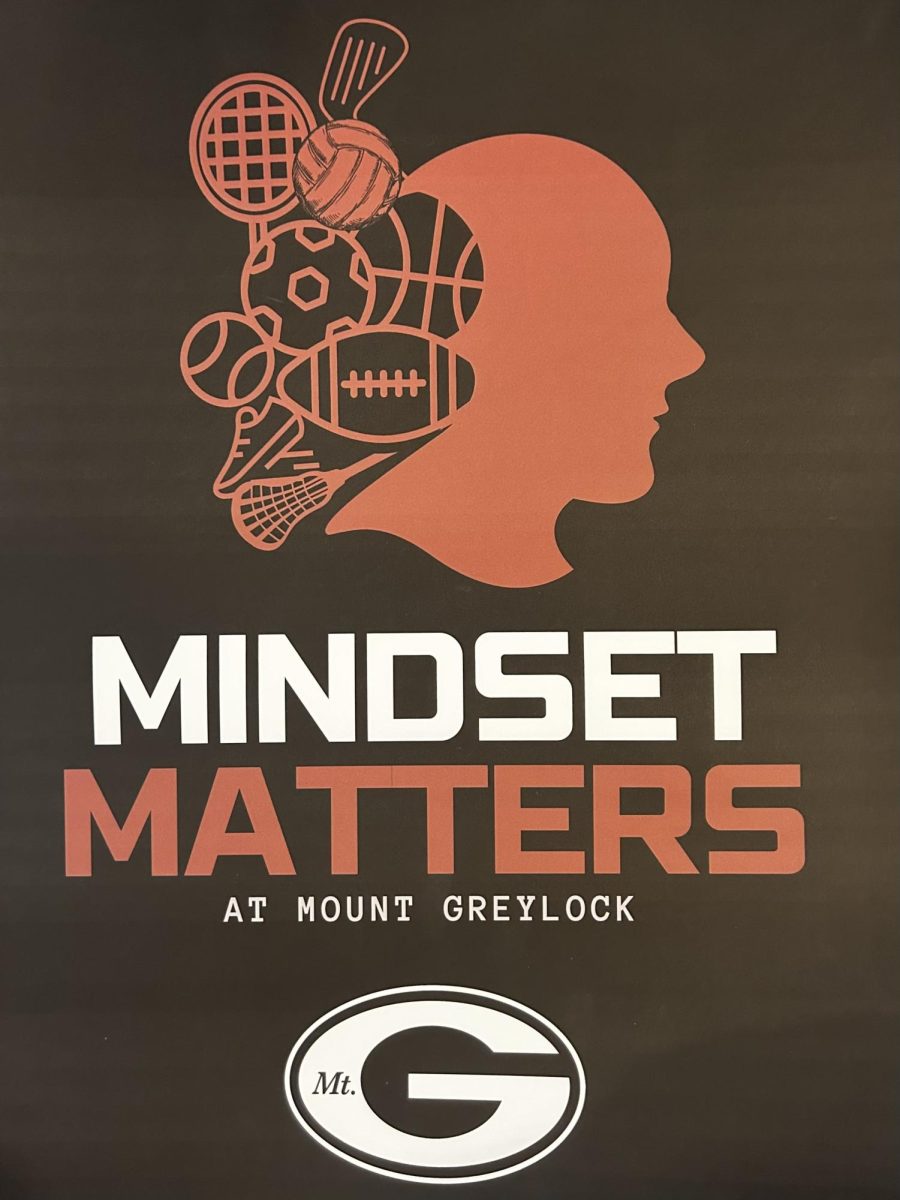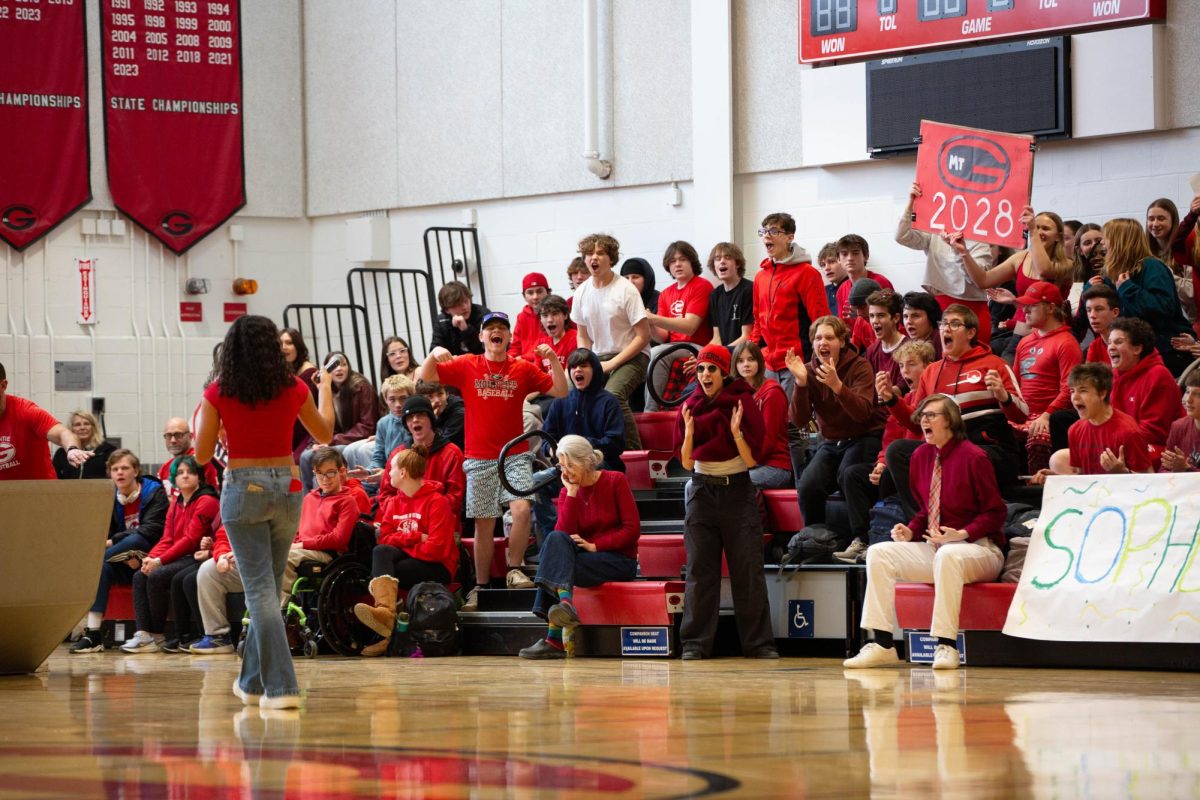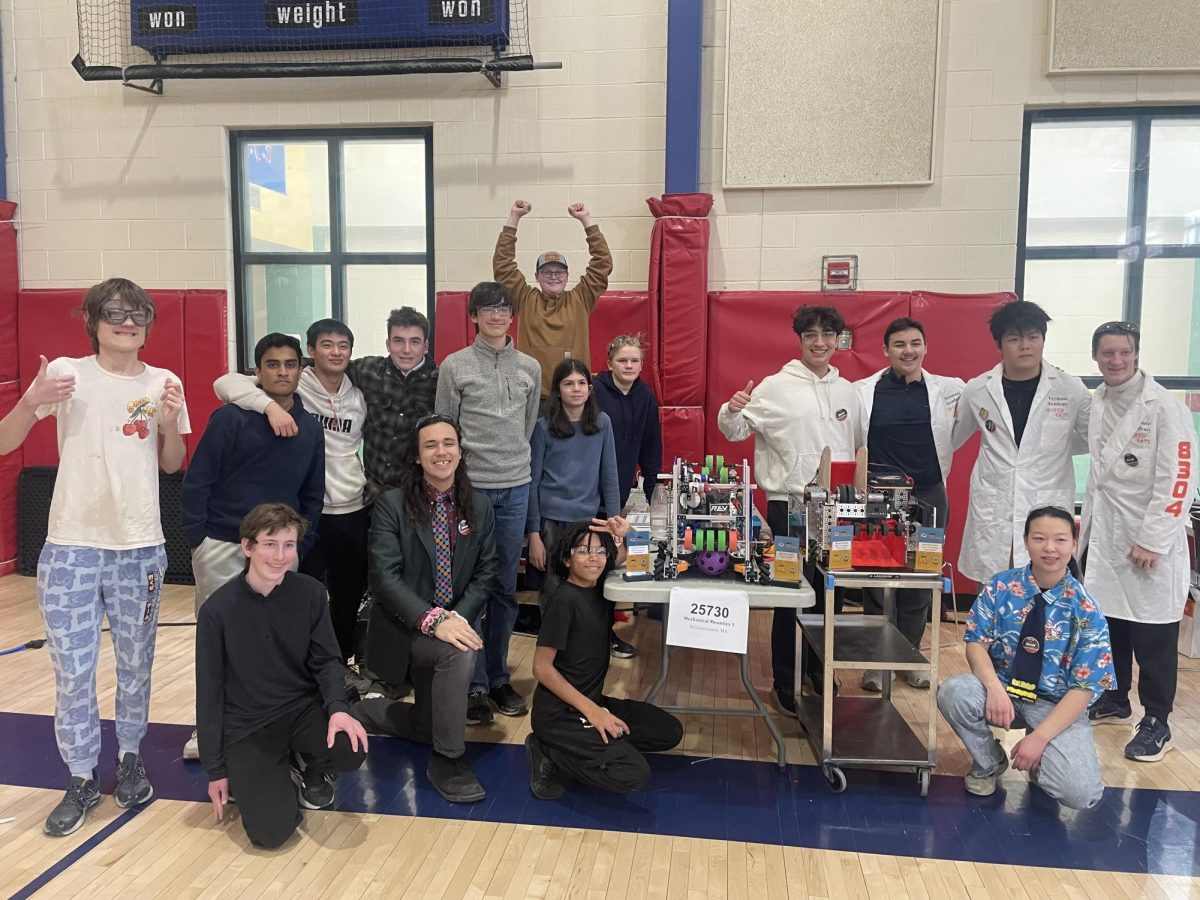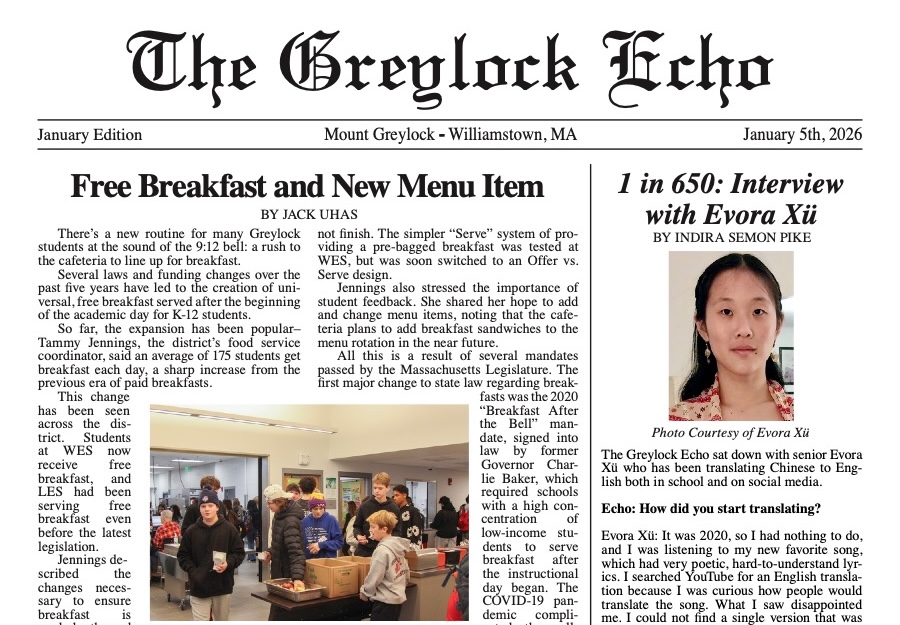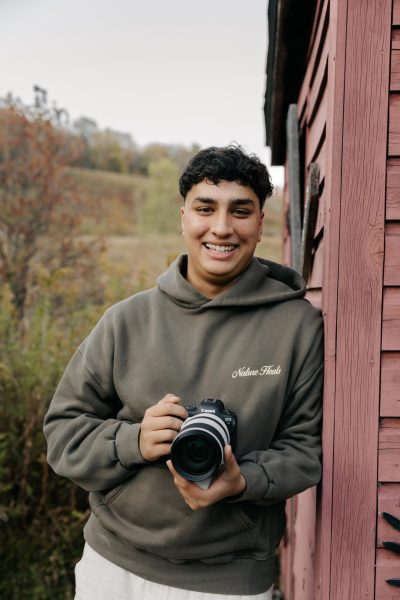There is a new club at Mount Greylock called Mindset Matters, founded by sophomore Ward Bianchi and advised by social worker Keith Jones. It focuses on mental health and helps athletes navigate the struggles and pressure they face in sports. This group provides a new perspective at Mount Greylock, stepping away from academics and focusing mostly on mental well-being.
Mindset Matters meets during Lunch C in A109 or the outdoor classroom, alternating between Tuesdays and Fridays. The club is only open to high school students right now. Although it was featured at the club fair, Jones calls it “a club/group” since they meet during the school day to accommodate for sports practices. So far, they have had three meetings, and around thirty members per meeting.
Bianchi said the goal of the club is to “raise awareness for mental health struggles among athletes” and that the club will “benefit many people, especially at Greylock.”
At meetings, athletes discuss their experiences during their sports seasons and brainstorm ideas to spread the word through fundraising, merchandise, posters, and potential speakers. Bianchi typically introduces a topic in each meeting, which Jones expands upon to keep discussions going. Topics or questions include overcoming change and dealing with the effects of a bad loss.
Jones also believes this is important because it helps student-athletes know that, “it’s okay not to be okay.” A lot of athletes feel pressure to perform, so the club’s not just about talking about how you’re playing but also how you feel as a person.
Junior Kofi Roberts, a varsity soccer player and track runner said, “I think it’s good that we have a group working towards helping everyone with their own struggles because personally, if I’m not confident going into a match, I might not play as well.”
Junior Luca Mellow-Bartels, a varsity soccer player and track athlete, said, “When you’re playing a sport, if you get into your own head, then it can create some problems for you.” Pressure can affect many athletes and their performance, and this club aims to help everyone with their struggles.
According to Mellow-Bartels, one of the catching points for the club so far is participation; although there are lots of members, not all are actively involved. “I think that’s partly because they don’t feel comfortable sharing about their own mental health in sports,” said Mellow-Bartels. Also, the club is particularly large, and members have expressed discomfort towards sharing their experiences in front of thirty to forty other people.
For the future, Bianchi said, “I hope to collaborate with the Williams club, similar to ours.” He also hopes members can feel more open with the group to share their thoughts about mental health so that Mindset Matters can continue to be a valuable mental health resource for Greylock athletes.


